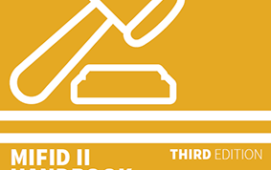Xenomorph has integrated its TimeScape EDM+ enterprise data management solution with the MongoDB NoSQL document database. The integration is available immediately and allows users to benefit from both the data processing and analytics of TimeScape EDM+, and the data storage scale and retrieval capabilities of the MongoDB open source platform.
The integration is designed to support increased data capabilities and transparency, and provides access to data stored in MongoDB through any of the application and programming interfaces to TimeScape EDM+. For example, data stored in MongoDB can be accessed through the Excel interface to TimeScape EDM+, as well as through interfaces to business intelligence tools Tableau and Microsoft Power BI. The data is then integrated with the data validation and cleansing capabilities in the TimeScape EDM+ browser environment.
Brian Sentance, CEO at Xenomorph, explains: “The integration of TimeScape EDM+ and MongoDB offers our clients greater data scalability at reduced cost. NoSQL databases like MongoDB offer great scale-out capabilities, but sometimes this comes at the cost of requiring staff with in depth expertise in the technologies. With this integration, clients can leverage all the data cleansing, audit and analysis functionality in TimeScape EDM+ without needing any knowledge of the underlying MongoDB database technology.”
Before integrating TimeScape EDM+ with MongoDB, Xenomorph investigated the application of NoSQL and scale-out SQL technologies to enterprise data management. Chris Budgen, chief technical architect at Xenomorph, says: “Enterprise data management in financial markets needs to keep up with broader advances in database and data management technology such as NoSQL. Document databases, such as MongoDB, have shown themselves to be an ideal fit for instrument reference and market data, and have the schema flexibility needed to match that of the TimeScape database model and support new data attributes and asset classes. MongoDB also offers the potential to store huge instrument universes.”
Subscribe to our newsletter




